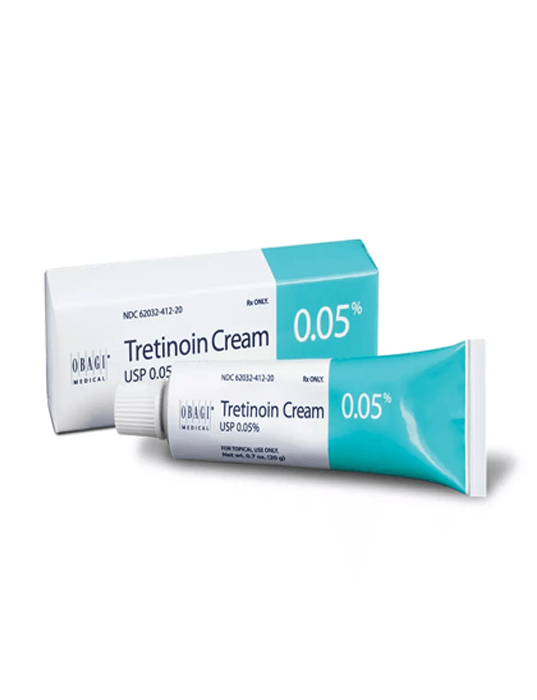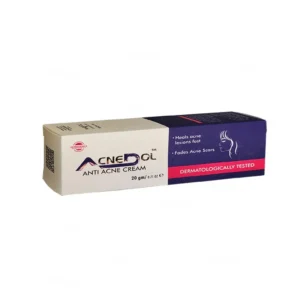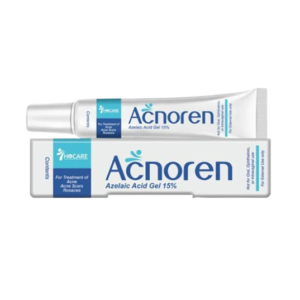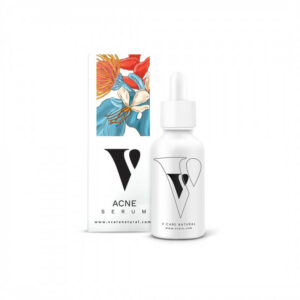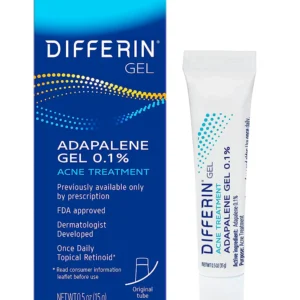ORDER SKINOREN CREAM 20% (10g) - Fast Delivery All Over Pakistan
Obagi Tretinoin 0.05% Cream Uses, Side Effects, and Price in Pakistan
₨ 5,000
An easy-to-use topical skincare cream enriched with Vitamin A.
Increased skin cell growth to build new elastin and collagen.
Treat multiple skin conditions acne, hyperpigmentation, whiteheads, pimples, sun damage, and premature aging
Reduces the appearance of wrinkles and rough skin caused by sunburn
Description
Tretinoin cream is a type of drug known as retinoids. It is a prescription medication that is applied topically to treat pimples, acne, and whiteheads. Additionally, it lessens the visibility of sunburn-induced wrinkles and rough skin. The skin treated with retinoin should be shielded from the sun.
Obagi Tretinoin 0.005% cream is a simple topical skincare product that uses the healing effects of vitamin A. The potency of Obagi Tretinoin stems from its “ready to use” formulation, which means that as soon as it enters your body, it can naturally and immediately convert to usable Vitamin A, the precursor required to promote the growth of new collagen and elastin cells.
What are the Uses/Benefits of Tretinoin Cream?
Uses of Retinoin cream include;
- Acne: Mild to severe acne is treated with retinoin cream. Additionally, it lessens the inflammation brought on by acne. Tretinoin also keeps acne at bay by lessening pore congestion.
- Hyperpigmentation: By replacing the old skin with new skin, retinoin lotion lightens the skin. Additionally, it slows down the process of new skin growing in place of destroyed skin. It balances the skin tone that is pigmented.
- Fine lines: Tretinoin lotion minimizes wrinkles and fine lines brought on by aging and sun exposure. Additionally, it stops solar damage from destroying collagen, which can promote accelerated aging.
- Skin lightening: By promoting the formation of new blood vessels, retinoid products such as Tretinoin cream enhance the tone of the skin. The look of the skin is improved by increased blood flow. Additionally, it enhances the look of photoaged skin.
- Skin smoothing: Tretinoin retains moisture in the skin and enhances its texture. Alpha hydroxy acids can be used with it to further smooth the skin.
How to use Tretinoin Cream?
- Follow the prescribed dose of Tretinoin cream for your skin condition
- Apply the topical Tretinoin cream on the affected skin areas, then rub it gently and thoroughly
- Apply a moisturizer before using Tretinoin cream as it can cause severely dry skin and irritation
- Use sunscreen after using retinoid creams as they cause photosensitivity
- Avoid direct sun exposure for tretinoin-treated skin
- Use the cream continuously till prescribed to get optimum therapeutic benefits
What is Tretinoin Cream Dosage?
The dosage of Tretinoin cream that is advised is
Doses for acne in adults and children
Apply a small coating of this lotion to your skin’s entire affected region at night.
Adult Dosage for Dermatoheliosis Changes Caused by Sun Exposure
Apply a pea-sized amount to the afflicted area of your skin each night before bed.
To determine the appropriate dosage of Tretinoin cream for your particular skin problem, it is recommended that you speak with a skin specialist.
What are the Side Effects of Tretinoin Cream?
Major side effects of Tretinoin cream include;
- Skin Irritation
- Skin dryness
- Skin Redness
- Burning sensations
- Photosensitivity
- Skin Peeling
Severe side effects of Tretinoin include;
- Dizziness
- Breathing difficulties
- Allergic reactions
Tell your doctor right away if any of these adverse effects worsen, as they might need to lower or stop the dosage of Tretinoin.
Does Tretinoin Cream interact with other drugs?
Tretinoin can have possible drug interactions with the following:
- Aminolevulinic acid
- Benzoyl peroxide topical
- Clascoterone topical
- Isotretinoin
- Methoxsalen
- Methyl aminolevulinate topical
- Porfimer
What are Tretinoin Cream Alternatives?
Here is the list of drugs that can be used in place of tretinoin cream for the treatment of acne;
- Benzoyl peroxide topical
- Tazarotene topical
- Salicylic acid topical
- Azelaic acid topical
- Clindamycin topical

